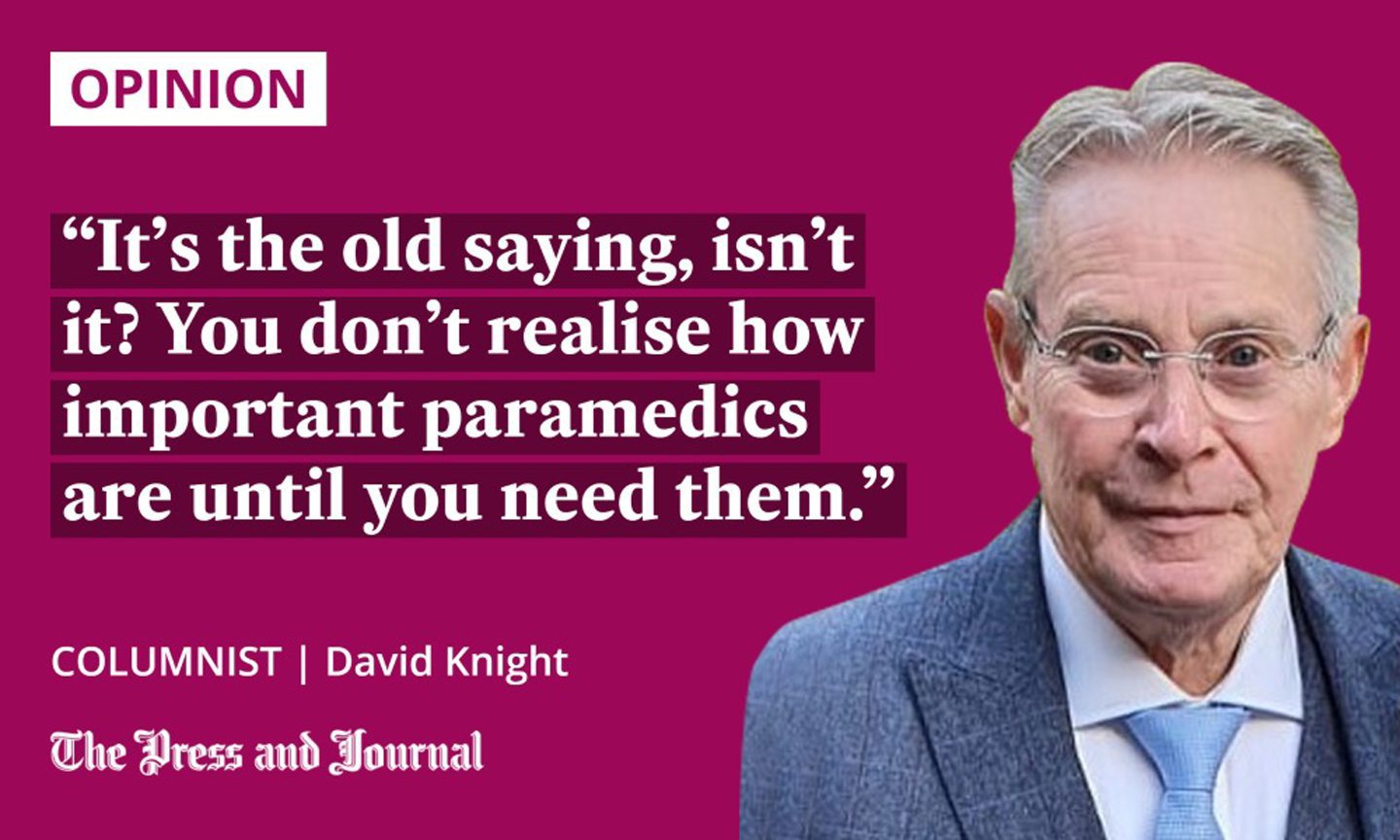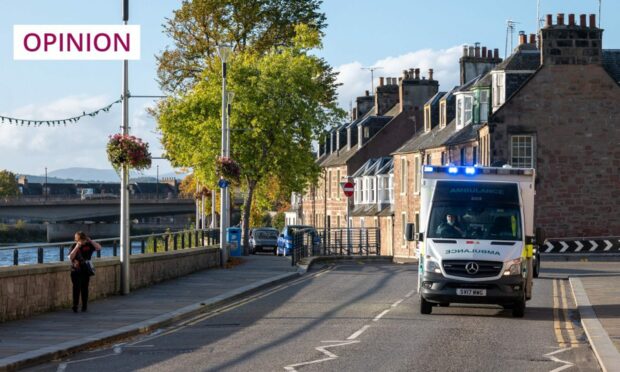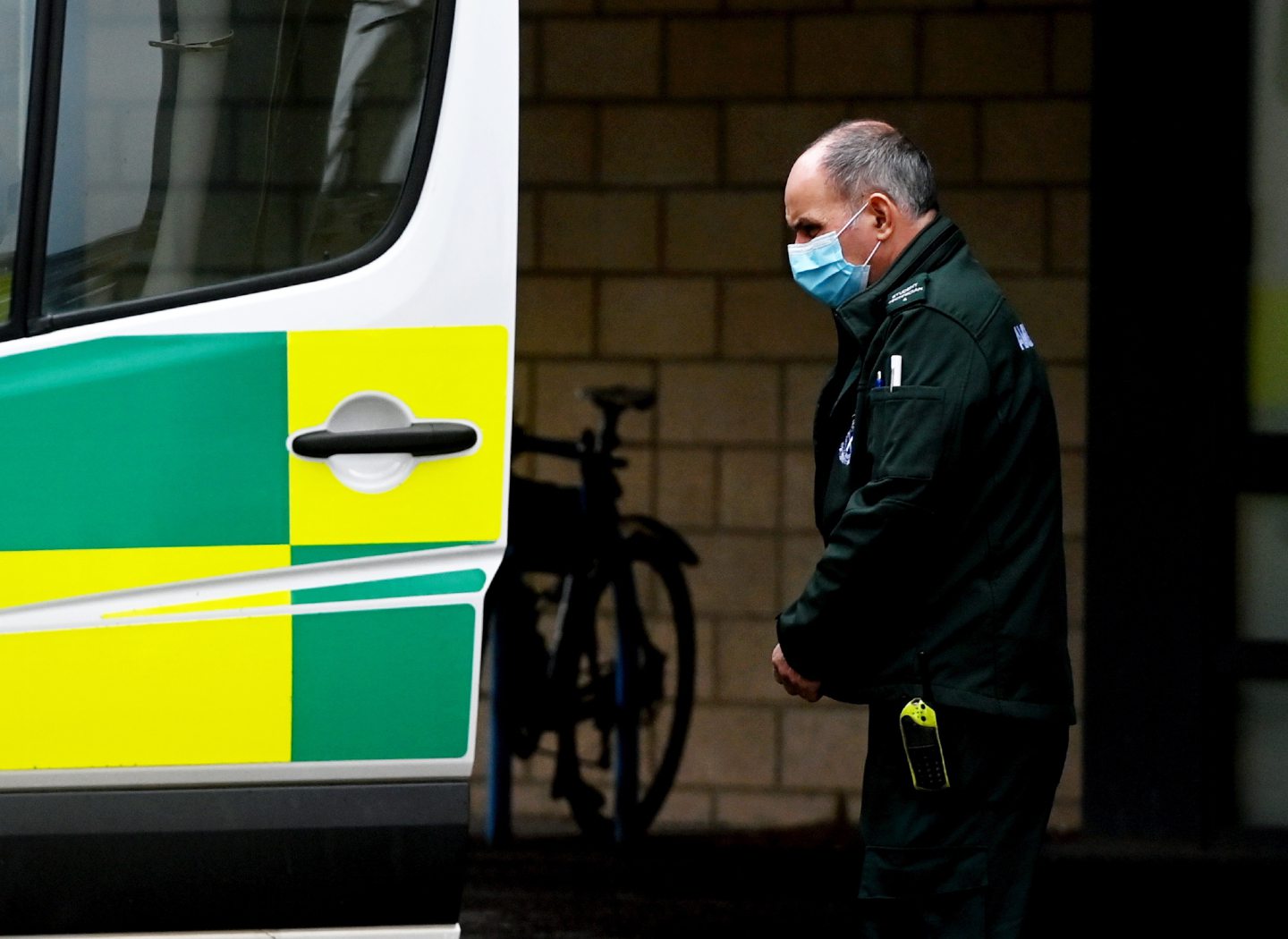A recent first-hand encounter with skilled and patient paramedics highlighted exactly why ambulance service strikes must be avoided at all costs, writes David Knight.
We enjoyed a right old knees-up with my mother-in-law to celebrate her 90th birthday. What an age.
She was born in the momentous days of November 1932. The Nazis were on the rise, with street violence breaking out across Germany, and a huge National Hunger March descended on London a few weeks before, after starting off from Scotland.
It was marred by violence, as police cracked down. There were similar running battles across the land during a period of “profound civil unrest”.
My mother-in-law has come full circle: it wouldn’t take much for similar scenarios now, as families struggle for food and heat. Can you imagine the words “hunger march” emblazoned across today’s media?

We all enjoyed a great party, but my wife and I were blissfully unaware that something awful was going to happen.
There was a strong representation from Aberdeen, with our contingent of seven travelling to Birmingham, and others from Spain and around the Midlands.
Food and drink, great company, a World Cup match on the telly – what more could anyone ask?
There was a lovely, funny photo taken on the night of our family generations around the sofa, with the youngest crouched in front. The picture was even funnier than it looked because we really were laughing – at the mobile phone camera.
You see, it seemed as though it had developed a life of its own. My son had set the self-timer for a couple of shots, but it carried on under its own volition.
So, we all kept leaping back to the sofa and counting down in time with the camera: “10, nine, eight…”
It’s the kind of scene you might see in a sitcom and have a good laugh about. It carried on like this for several hours.
Emergency in the night
After 48 hours had slipped by since the party, only my wife and I were still at the house with her mum. We were preparing to head north again.
Why is it that so many bad things seem to happen in the early hours?
It was around 3am and I was deep in my favourite dream: someone was hammering on my front door, desperate to hand me a gigantic lottery win. Suddenly, I was awake with a start as my wife rushed towards the door.
It felt like I was buying car insurance instead of trying to save a life
She shouted something about the hammering on the wall. It was her mum in the next bedroom, crying for help.
At 90, you might not be surprised to hear that she is frail, vulnerable – particularly as she is widowed and lives alone – and in ill health. She was struggling to breathe and her body was stone cold.
We staggered about, bleary-eyed and disorientated. We wouldn’t be human if we didn’t fear the worst.
Eventually, I was on the line to the NHS 111 call centre, asking for help.
Minutes ticked by as endless electronic prompts and options were presented. And, all the while, they were trying to get me to go online instead. It felt like I was buying car insurance instead of trying to save a life.
Finally, an operator answered, who was remarkably chirpy and friendly for 3.15 on a Monday morning.
Lots of calm advice soothed frayed nerves, until she said: “Right, we don’t have an ambulance in your area, so it could take several hours.” Now they sounded like the AA breakdown service.
In fairness, they did suggest the 999 option if things deteriorated. But, there was no need; we were delighted and relieved – an ambulance rolled up 20 minutes later.
What would we have done without paramedics?
We were full of admiration for the professionalism of the two paramedics. They took charge with consummate ease, stabilised her with a nebuliser, and distracted a frightened old woman with kind words. (“Have you had your hair done? It looks lovely.”)
They stayed for around two hours. The drama subsided, but they gave a pep talk about taking her heart pills every day to stop this happening again.
I dread what would have happened if we had been caught up in the threatened ambulance strikes, and soldiers had turned up instead. I am sure they would have done their best, but it’s not the same.
Ambulance workers have seen over ten years of austerity in the NHS.
They deserve better. That's why they've voted to strike. pic.twitter.com/aHMgnEyCGG
— GMB Union (@GMB_union) December 1, 2022
It’s the old saying, isn’t it? You don’t realise how important paramedics are until you need them.
The governments in Westminster and Holyrood who have fanned the flames of these NHS industrial disputes must raise their game before the system implodes. But, key public sector staff must also contribute sensibly to avert disaster.
Inflation-busting pay demands also fan the flames of economic meltdown. What’s the use of an over-the-top pay rise if it’s gobbled up after triggering further price rises?
Paramedics don’t look like they need to go on a hunger march, but the recent impasse over pay isn’t healthy either.
David Knight is the long-serving former deputy editor of The Press and Journal


Conversation